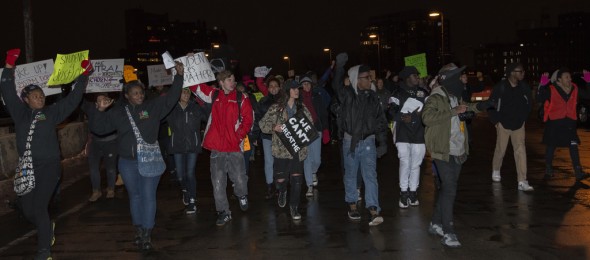Nancy H. Rogers, Professor Emeritus of Law at the Ohio State University Michael E. Moritz College of Law has authored a timely paper entitled, “When Conflicts Polarize Communities: Designing Localized Offices that Intervene Collaboratively,” Ohio State Journal on Dispute Resolution, Forthcoming; Ohio State Public Law Working Paper No. 283. In her publication, Professor Rogers examines how localized public policy mediators, conciliators, peacemakers, and other intervenors may assist in restoring order during times of heightened community conflict such as those that recently occurred in Ferguson, Missouri.
Here is the abstract:
In polarized conflicts, such as that recently experienced by Ferguson, Missouri, experienced state and local intervenors can help a community develop processes to address its problems more effectively and peacefully. Localized offices of intervenors do not replace the need public officials to make decisions about the problems at the heart the conflict or the need for police to keep order. Still, when experienced and organized effectively, state and local intervenors can give immediate and trusted counsel to local officials, help them understand the value of bringing in the U.S. Department of Justice Community Relations Service (CRS) intervenors, augment CRS intervenors, and take on CRS’s role when it cannot be there. In addition, state and local intervenors stay on to re-build relationships, help the community create structures to solve the problem illuminated by the incident, and sow seeds to prevent future issues from polarizing the community. The article suggests three questions for those designing such a state or local office: (1) Will public officials make the decisions about when and how to intervene and will they do so informed by experts who can assess the feasibility of intervening? (2) Will the office offer a hospitable work climate and culture for the intervenors as well as a workable approach to accountability to funders that does not undermine creation of a hospitable climate and culture? (3) Will the office appropriately balance the sometimes conflicting needs to engender trust and engagement in the midst of an emotional and divided community, protect the administering agency’s other roles, and respond to the changing needs for resources?
This and other scholarly articles authored by Professor Rogers may be downloaded without charge from the Social Science Research Network.
Photo credit: Fibonacci Blue / Foter / CC BY














